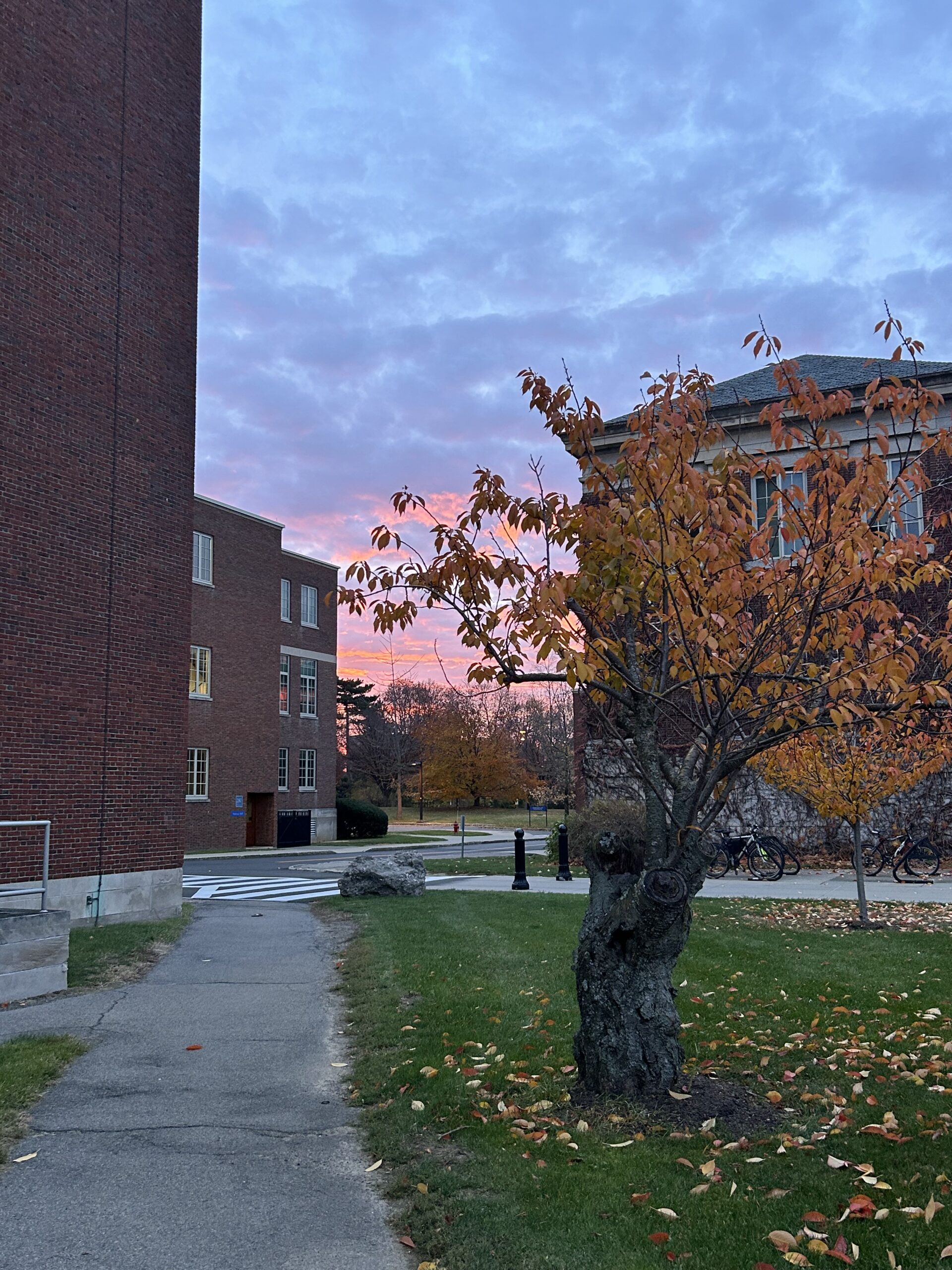Networking. The thing my dad really wants me to do. Well, I’m going to go out on a limb and say that networking today has a lot more components than when he was at school in 1990, when the only form of social media was email, and you networked by meeting people in broken elevators or something. I bet he didn’t even check his email.
To make matters worse, I’m an introvert: the thought of walking up to someone who doesn’t know me and demanding their time and attention seems pushy, devoid of self-awareness, and just plain awful. However, I have a sneaking suspicion that networking matters if I’m going to have a job after graduation. In that spirit, I am here to provide you with my advice for networking at the U of R: to take full advantage of the resources available to you so you can minimize any perceived unpleasantness. I promise it’s not actually that bad.
1. Meliora Collective mentorship program
Effort level: low
Standout: high potential for deep, enduring connection
The Meliora Collective is a giant database of alumni who’ve agreed to give their information to current and former students. Among these alumni are recent grads establishing themselves as working professionals, current med school attendees, industry experts in every field imaginable, and even retired alumni looking for a chance to pass on their knowledge. If you’ve ever had a meeting with the Greene Center, our on-campus career guidance office, you’ll know that they encourage reaching out to alumni in your field when it comes to looking for summer internships. But an email to a stranger can be scary! That’s why I recommend the Meliora Collective mentorship program: you can sign up every semester and be matched with a mentor in your field, eliminating having to reach out unprompted. You know that they signed up to be a mentor so you’re not bothering them, and the program provides a suggested structure for your meetings and questions you might want to ask – practically taking all the work out of networking!
Through the mentorship program, I had the chance to connect with an alum working in academia and to learn about her path, and the advice she had to give; this semester, I’m hoping to connect with someone working in industry, to get a broader sense of the possibilities out there for me.
2. Student Alumni Ambassadors
Effort level: medium
Standout: networking and leadership opportunities combined
As described on their website, the Student Alumni Ambassadors (SAAs) are “a select group of undergraduate students managed by the Office of Alumni Relations and Constituent Engagement to serve as liaisons within the University’s alumni community.” You can apply to be a SAA in the early spring semester, and join other students from all years and disciplines who are just as excited as you to connect with alumni and learn more about the University’s inner workings. SAAs help organize and run alumni events, especially Meliora Weekend in the fall, but they also lead private tours for alumni and help build connections between current students and alumni, for example by recruiting students to write letters to alumni donors.
For their recent recruitment campaign, many SAAs shared their favorite parts of the program. Examples included getting to meet people on campus they wouldn’t have known otherwise, hearing about old University traditions from alumni, promoting school spirit on campus by helping with the Rochester Traditions (candlelight ceremony, Forever Rochester week, I <3 UR Day, the senior giving campaign), and the sense of being able to give back to your community.
3. Say yes to the unexpected
Effort level: unpredictable
Standout: full of surprises
Yesterday, I ended up at the Biology Department’s faculty and grad student Happy Hour. What’s up with that? I TA for a professor, and he invited the four of us undergraduates along. I got to connect with some of my current and former professors outside of the classroom, and get to know some of the graduate students who will definitely have insight for me when I’m deep in the grad school application process.
Earlier this year, I randomly applied to join my University’s team for Scholars Transforming through Research, a Council for Undergraduate Research initiative that took us to Washington, DC, to connect with offices of policymakers. I sat in the office of my congressional representative! That’s crazy! My point is, you don’t know what opportunities will come your way, and you can’t always predict outcomes from how things initially appear. Be open to whatever might come your way.
4. Reach out to the greater world
Effort level: high
Standout: infinite possibility!
So you’ve met some alumni, either organically standing in line next to them at a food truck, or through a planned career networking event. Feeling a little braver? It’s time to start jumping off into the deep end.
Ah, LinkedIn. The most professional form of social media. If you take any of the WRTG 273: Communicating Your Professional Identity courses, you’ll end up working on your LinkedIn as part of your course homework, an easy and effective way to get that vital aspect of professional life going. I did not take that course, so I’m kind of starting from nowhere. I recommend this guide to jumpstart your LinkedIn presence.
Send that LinkedIn message to a completely unknown higher-up at a company you think looks cool. Set up meetings with professors whose careers you find interesting. Reach out to industry professionals to get their take on how to be successful in your field post-grad. Networking is a form of advocating for yourself and your career: if you don’t do it, who will?

